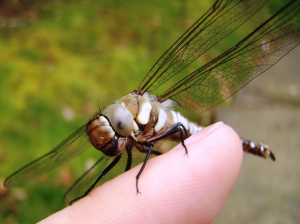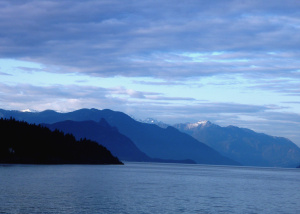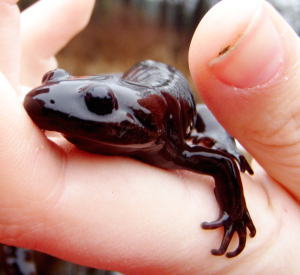Could a Biblical understanding of our relationship with nature be the key to effective and purposeful conservation? Steph Bryant, Faraday Youth and Schools Co-Director, writes about the relationship between human beings and the planet. She considers the damage we have done, and whether there is any place for hope as we explore ways to remedy the situation and better care for the world around us.
For as long as I can remember I’ve been enthralled by animals. This fascination has steadily grown into a love for scientific knowledge, which helps me to understand the natural world. It was of very little surprise to anyone who knew me that I found myself studying Natural Sciences at the University of Cambridge, specialising in zoology and focussing my final year studies on ecology and conservation science. For me, an appreciation of the natural world leads naturally to concern over its destruction and how we might remedy the situation. But how does that fit with being a person of faith? As a Christian, where do I see purpose in conservation science or ecology? Where do I see hope in a discipline often tinged with despair?
Conservation science is, for me, an act of seeking to obey God’s commands. Genesis 1 says that God created man to ‘rule over’ creation. If, as Psalm 24 states, ‘the Earth is the Lord’s’, why would we allow our ‘rule’ to be characterised by irresponsible, destructive and exploitative practices? Surely, instead we should try to reflect God’s great and awesome love for all of creation through work that is characterised by love and responsibility.
A responsible rule would be one which benefits the natural world. But it is also an effective way to care for other humans: to seek to ‘love your neighbour’ (Matthew 22:34-40). As much as we pride ourselves on our technological advancements and the distance we have put between ourselves and our ‘caveman’ roots, we still depend almost entirely upon healthy, functioning ecosystems for our survival. We need wetlands to buffer our cities from storms and floods; animals, namely insects, to act as pollinators or pest control for many of our food crops; forests to protect areas from erosion and catastrophic landslides; healthy oceans to provide us with much of the fish we eat… The list is endless. It is particularly important for us to acknowledge this if we are to love and help not only the world around us but also the most vulnerable, struggling and impoverished of nations: people who often directly rely on these so-called ‘ecosystem services’ for their livelihoods.
One of the biggest obstacles to conservation is outlined by Andrew Balmford, a Professor of conservation biology at the University of Cambridge, in his excellent book Wild Hope[i]. He asserts that the recent rapid urbanisation of human society (over half of us now spend our time living and working in towns and cities, indoors, online or travelling by car or train) is contributing to an ever increasing disconnect between humans and creation. Where does the water in my tap come from? What watershed area do I live in? What are the bird species I am most likely to see at this time of year? What phase is the moon in? Most of our answers to questions like these would indicate that we have, indeed, lost a great deal of our awareness of the natural world. This is a problem: how can we effectively help a world that we do not currently understand?
So a key purpose for conservation scientists is to study the natural world, ‘the works of the Lord’ and to help others understand them – to grow, and encourage others to grow, in knowledge and understanding and therefore in appreciation and love for creation. Last year I spent 9 months living in Canada. I was working with A Rocha, an international Christian organisation which – inspired by God’s love – engages in scientific research, environmental education and community based conservation projects. It is a pleasure to see the way that projects like this can cultivate understanding and kindle a desire to care for God’s world, inspiring us to use our power, creativity and intellect for the good of all who share this remarkable and awe-inspiring planet.
You can find out more about Steph’s adventures in Canada at thewanderingzoologist.
[i] Balmford, Andrew – ‘Wild Hope’ (The University of Chicago Press, 2012), Chapter 1 – The glass half empty pp. 1 – 17







